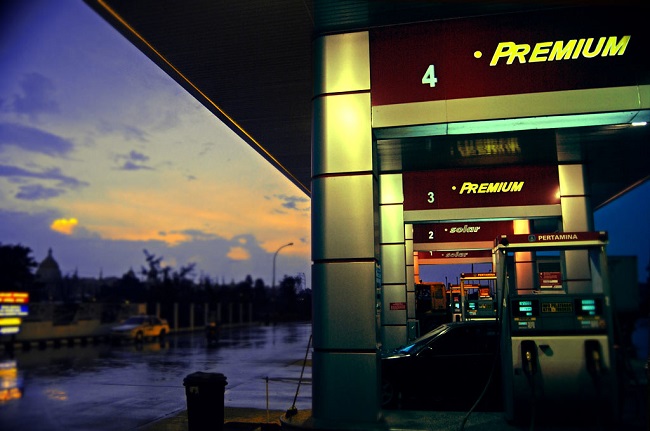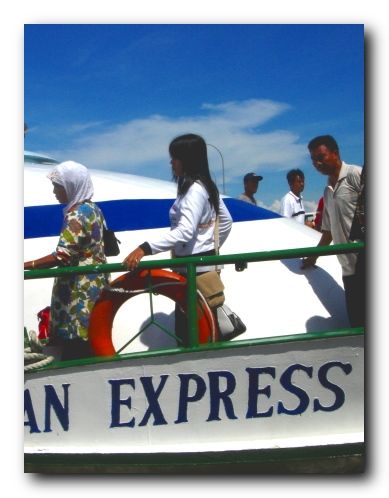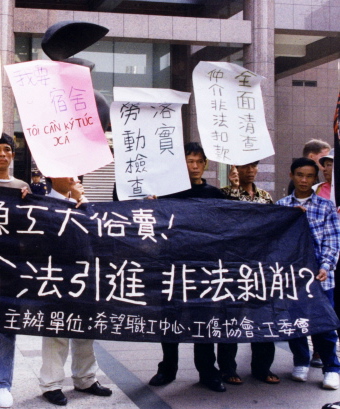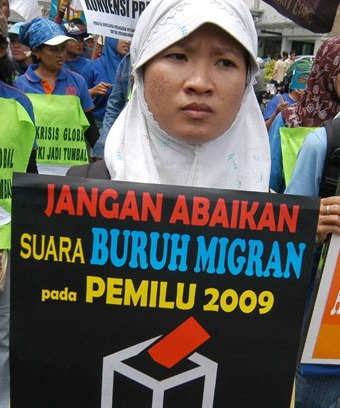Regulators, contracts and corruption in Indonesia’s upstream oil and gas sector
Regulators, contracts and corruption in Indonesia’s upstream oil and gas sector
Michael Buehler
The collapse of the New Order during the Asian financial crisis paved the way for many political and economic reforms in Indonesia. In exchange for development aid, multilateral donor agencies such as the World Bank and the International Monetary Fund (IMF) required Indonesia to implement governance reforms in a variety of fields, including the natural resource extraction sector where the monopoly of state-owned oil company Pertamina was ended.
A new law revoked Pertamina’s right to regulate the sector and created an independent regulatory agency called Badan Pelaksana Kegiatan Usaha Hulu Minyak dan Gas Bumi (BP Migas – the Oil and Gas Upstream Business Activities Operational Agency). BP Migas’ task was to establish an accountable and transparent regulatory framework for the energy sector and ensure compliance. In 2012, the Constitutional Court ruled the agency was invalid, as it deprived the state of control over natural resources. BP Migas was abolished the same year.
Since that ruling the Indonesian legislature is, at this writing, still deliberating a new legal framework for the oil and gas sector. In 2013, Indonesian president Susilo Bambang Yudhoyono issued Presidential Regulation No. 9/ 2013 establishing Satuan Kerja Khusus Pelaksana Kegiatan Usaha Hulu Minyak dan Gas Bumi (SKK Migas – the Special Taskforce for Upstream Oil and Gas Business Activities), which replaced BP Migas.
SKK Migas is part of the Ministry of Energy and Mineral Resources (MEMR), and therefore part of the executive branch; the chair is directly appointed by the Indonesian president. It issues policies, monitors the upstream oil and gas sector and signs Production Sharing Contracts (PSC) on behalf of the government. This provides SKK Migas with tremendous power to extort payments and rents from companies should it wish to do so. Shortly after the regulatory agency was established, several staff at the highest level abused their powerful positions as gatekeepers for contract approvals, as court verdicts and accusations against former chairs of the regulators show.
Are self-regulating ‘focal companies’ the answer?
Following these scandals Amien Sunaryadi, a former deputy chair of the Corruption Eradication Commission, was brought in to run SKK Migas. According to Sunaryadi, the agency was overburdened by the sheer number of contracts that needed approval and thus became very inefficient. Project delays and the costs associated with them often created perverse incentives for contractors to bribe SKK Migas in order to expedite approvals.
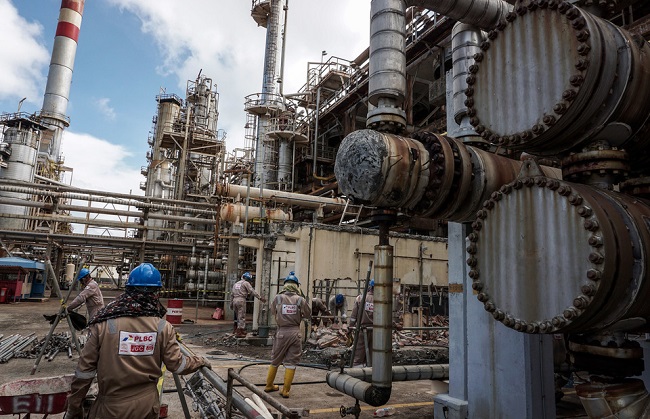
To address this issue, Sunaryadi raised the ceiling for contract values that needed SKK Migas approval from U$5 million to U$20 million. To contain the risk of corrupt practices in contracts with a value below U$20 million, rights holders were given the authority to audit their subcontractors to assure compliance with transnational norms such as the Foreign Corrupt Practices Act (FCPA) as well as Indonesian laws and regulations.
Sunaryadi placed great hopes on these ‘focal companies’ to self-regulate and thereby contain corruption in their supply chains. However, trusting these companies to police themselves has not been very effective. Disclosure rules have also been lax, with the overwhelming number of contracts in the industry still not available in the public domain, an issue that has plagued the Indonesian oil and gas sector since the colonial government granted the first petroleum concession in 1883.
Imposing international norms has undoubtedly made it more difficult to engage in corrupt activities but the capacity of these efforts to curb corruption remains weak. In fact, the role of ‘focal companies’ in combatting corruption will likely be reduced further in the next few years as Indonesia’s oil and gas sector shifts from cost recovery to gross split contracts.
Cost recovery vs. gross split
A concession system dominated the early years of commercial oil and gas production around the world. Under such a system, governments provided concessions to (mostly foreign) oil and gas companies. In a concession system, a government signs the ownership of natural resources over to a company for a clearly defined territory during a limited period of time.
After growing criticism about the ‘colonial’ nature of such arrangements, the sector looked for other forms of contractual agreements between governments and oil and gas companies. In this context, Indonesia pioneered Production Sharing Contracts (PSCs) in the 1960s. Under a PSC, a government maintains its ownership of natural resources at all times and merely contracts a company to extract the resources on its behalf. After PSCs were introduced in Indonesia in 1966, they quickly became the dominant contractual arrangement in the upstream oil and gas sector in developing countries around the world.
An important part of PSCs is the cost recovery mechanism. It stipulates that rights holders can reclaim costs associated with the exploration and exploitation of oil and gas before any revenues are due to the Indonesian state. This means that even subcontractors not directly engaged in a commercial relationship with the government of Indonesia are subject to its corruption laws and regulations, as they are billing their costs to the state through the cost recovery mechanism. This legal arrangement creates, at least theoretically, incentives for rights holders to combat corruption in their supply chains.
Almost from the start, the cost-recovery mechanism in Indonesia’s PSCs was subject to abuse. Rights holders and contractors inflated their costs and submitted invoices for services that had not been rendered as well as goods that had not been delivered. The Audit Board of the Republic of Indonesia stated in a 2005 report that oil and gas contractors had claimed expenses for goods and services such as dancing courses, charity contributions, DVD movies, parties, and pilgrimages to Saudi Arabia. Such blatant abuses of the cost-recovery mechanism led to calls for reform.
In January 2017, the MEMR issued Regulation No. 8/ 2017 on Gross Split Production Sharing Contracts. The new regulation put forward a PSC model under which the state and rights holders agree on a split of gross revenue prior to the exploration and exploitation of oil and gas deposits. The share of revenues the rights holder receives under a gross split PSC is significantly higher than under the cost-recovery PSC. In exchange, however, the cost-recovery mechanism is abolished and rights holders can no longer reclaim their project expenses from the government.
Three years after the introduction of the gross-split model, it is evident many stipulations are either unclear or in direct violation of existing laws and additional regulations have not brought more clarity on the subject. Besides the short-term implications, and the confusion and legal uncertainty created by the shift toward gross splits, the long-term impact remained largely unclear at this writing. It may well take decades before the impact of this shift will be fully understood as existing cost-recovery PSCs, some of which run until 2040, will remain in place.
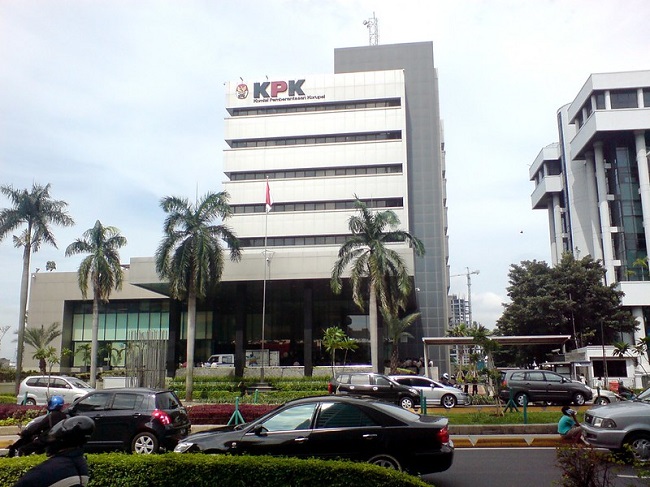
However, it is clear that this shift will make it more difficult to combat corruption in supply chains through focal companies. This is because practices that qualified as corruption under Indonesian law under a cost-recovery model will no longer qualify as such under a gross-split approach. Cost manipulation, undersupply of material, and overcharging of services by subcontractors can no longer be billed to the Indonesian state as such activities would simply reduce the revenues of the rights holder.
Since the Indonesian government is also not directly involved with most subcontractors, they can no longer be prosecuted under Indonesia’s corruption eradication laws – costs will be borne solely by the rights holder. Consequently, many of the practices described above will no longer constitute ‘corruption’ or ‘state losses’ as the state is no longer involved. The capacity of focal companies to combat corruption in their supply chains shrinks accordingly.
What next for corruption in upstream oil and gas?
The Indonesian case shows that the extensive regulatory framework established to contain corruption in the oil and gas sector’s supply chains was rendered ineffective by broader political dynamics from its inception. Other regulatory strategies, relying on focal companies to introduce good corporate practices and self-regulate, have also been ineffective as shortcomings and loopholes in regulatory and legal frameworks weaken the capacity of such companies to enforce good corporate governance. As Indonesia moves from a cost-recovery to a gross-split model, this will reduce the capacity of focal companies even more to combat corruption within their supply chains.
In Indonesia, corruption and rent-seeking are at the very heart of the elite coalition that dominates politics. In a country where corruption is prevalent at all levels of the state apparatus and across all three branches of government, oversight agencies and focal companies will always be exposed or even be an integral part of predatory networks. The puzzle of ‘Who guards the guardians?’ cannot effectively be solved in such an environment, as the judiciary or the parliament do not perform these functions in Indonesia.
Rather than drafting and implementing further off-the-shelf corruption eradication programs that do not take political realities on the ground into account, a fundamental re-thinking of how corruption is perceived and fought is needed. Most importantly, rather than relying on a moralistic understanding of corruption, which currently determines the strategies of most donor agencies as well as the Corruption Eradication Commission, a democratic understanding of corruption is needed.
Such an understanding of corruption will emphasise socio-economic inequality as the root of corruption in places like Indonesia. Arguably, this is more likely to lead to awareness among ordinary Indonesians of their place in the country’s political ecology than moralistic approaches to corruption. It is such an awareness that has led to the rise of mass movements against predatory elite networks and the implementation of effective anti-corruption measures elsewhere, a precondition for fighting corruption in natural-resource based supply chains more effectively.
Michael Buehler is an Associate Professor in Comparative Politics at the School of Oriental and African Studies (SOAS), University of London. A longer version of this article was published in Oil, Gas & Energy Law Intelligence (OGEL) in March 2020 titled ‘Try to be more like Norway on a Sunny Day!’: Regulatory Capitalism and the Challenges of Combatting Corruption in Indonesia's Upstream Oil and Gas Sector Supply Chains. The article is available at https://michaelbuehler.asia/

